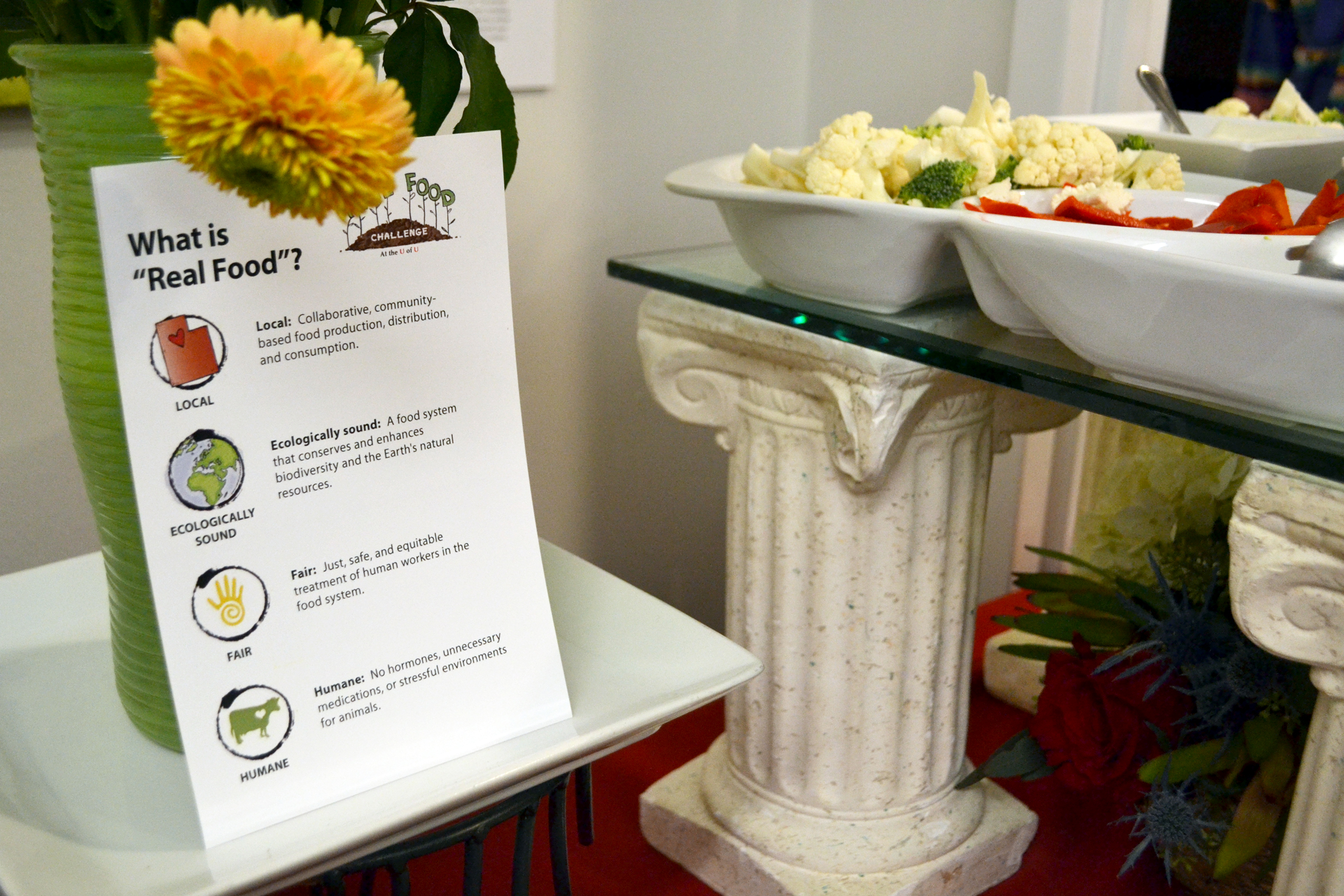
March 4, 2015 – University of Utah President David W. Pershing recently signed the Real Food Campus Commitment, making the U the largest school in the country, and the first in the Pac-12, to commit at least 20 percent of its food-purchasing budget to “real” food by 2020.
The Real Food Challenge is organized nationally and works with universities to create more healthy, sustainable and fair food options on college campuses. Its primary goal is to shift $1 billion of existing college food budgets away from industrial farms and unhealthy sources to “real food,” which is community-based, fair, ecologically sound and humane.
“I am impressed by the tremendous passion and effort our students put into this as well as the encouragement and support of Dining Services Director Reggie Conerly,” said Amy Wildermuth, chief sustainability officer at the U. “This commitment allows us to show how our university can set an example for others as we walk-the-walk of sustainability.”
Kathleen Hunt, Dining Services sustainability coordinator and doctoral candidate, worked closely with Conerly to begin the food purchase assessment using the Real Food Calculator.
With funding Hunt secured from a Sustainable Campus Initiative Fund grant, student Willem Schott was hired to lead the effort and found that about 11 percent of the food served by Dining Services was “real.”
Schott remained active in the Real Food movement and is now the president of the Real Food student group at the U. In fall 2014, he hosted a site visit by the national organizers and petitioned for the University of Utah to officially join the challenge.
While there is work to do to meet the goal, University Dining Services has already shown a commitment to sustainable food. It has been the largest purchaser of fresh produce grown on campus at the student-led Edible Campus Gardens and from vendors at the U’s Farmers Market as well as from other regional farmers.
“The U has immense power to create and inspire innovative change in campus food systems,” said Erin Olschewski, sustainability ambassador and vice president of the Real Food Challenge student group at the U. “This commitment is just the first step in what will be an ongoing evolution of student-led movements for sustainable changes.”
